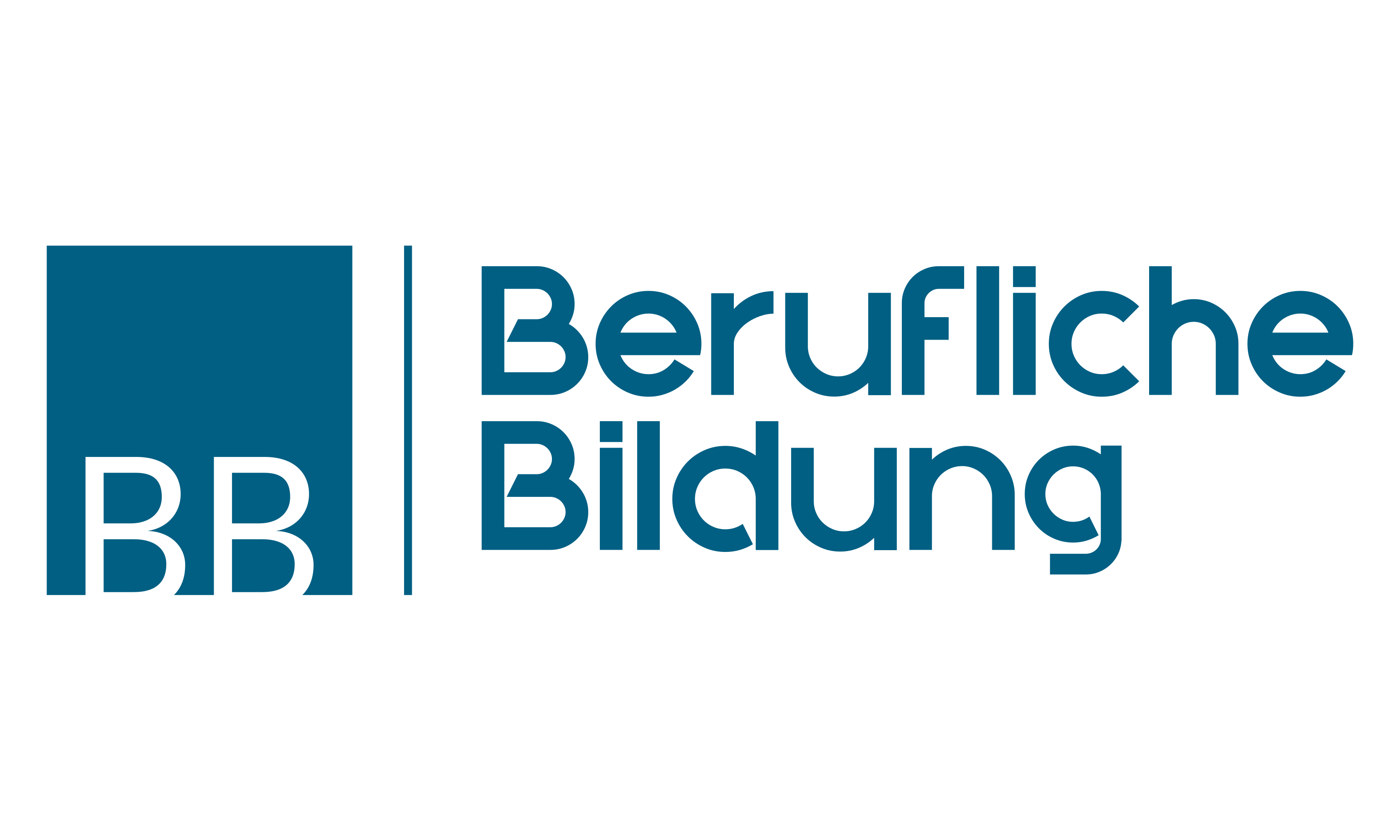Current projects
The aim of the project is to design, test, evaluate and establish a digitally supported study program to promote educational data literacy among student teachers. The program is intended to provide student teachers with experiential spaces for critical engagement with findings from the field of school and classroom research.


Research and development project for the improvement of the quality of vocational orientation at vocational schools.
- Funding: BMBF
- Consortium Lead: Prof. Dr. Susan Seeber
- Own Role: Project Lead
- Duration: 01.10.2024–30.09.2027


- Financing of the study: Prof. Dr. Susan Seeber (own funds)
- Duration: 01.07.2024 – 31.12.2024
Nationwide survey to assess the democratic practices and attitudes of young adults in employment, education, and training, as well as democratic learning opportunities in the workplace and educational settings such as vocational schools, companies, and universities. For this purpose, young adults aged 18 to 35 were surveyed nationwide between July and September 2024 as part of an access panel (Bilendi) (n = 3,000).
Collaboration in the EU framework project Pioneering policies and practices tackling educational inequalities in Europe (PIONEERED)”
- Funding of the collaboration: own funds
- Overall coordination PIONEERED: Prof. Dr. Andreas Hadjar (University of Luxembourg)
- Head of Deliverable 4-2: Dr. Andrea B. Erzinger, Dr. Simon Seiler, Robin Benz (University of Bern)
- Own function: Collaboration (contribution to Deliverable 4-2, working paper scientific: “Consequences of school segregation on achievement and attainment” as part of Working Package 4)
- Collaboration partners: Dr. David Glauser (University of Bern), Prof. Dr. Katja Scharenberg (LMU)
- Duration: 01.03.2021-29.02.2024
The education systems in Germany and Switzerland are characterized by an early differentiation between educational pathways, with different courses of study varying different levels of requirements (tracking). Furthermore, both countries also have a highly differentiated system of vocational education and training which provides young people with the opportunity for a relatively seamless transition into qualified employment. On the other hand, there is regular empirical evidence of significant origin-related disparities in educational success in both countries. Given the similarities in the structure of the two education systems, a comparison between the two countries can provide valuable insights into whether the different school learning and development created by segregation at secondary level have similar or different effects on post-compulsory education pathways in the two countries.
Cooperation for the evaluation of a simulation game as part of the course ‘’Companies and Markets’’ at the Georg-August-Universität Göttingen
- Financing of the cooperation: own funds
- Cooperation partners: Prof. Dr. Sebastian Hobert (University of Lübeck) and Dr. Philipp Hartmann (University of Göttingen
- Duration: 01.06.2022-29.06.2024
Cooperative learning is a key part of simulation game. From the perspective of cognitive-constructivist theory, there are reasons why cooperative learning can help students learn. For example, cooperative forms of learning require confrontations with different ideas, views and concepts. The joint exchange also helps students develop their thinking. It is still unclear how the quality and diversity of cooperative leaning groups affect simulation games.
Our research projects pursues two aims. We will look at how different types of cooperative learning affect the business game. Secondly, we will look at how cooperative learning influences the effectiveness of the simulation game in terms of learning outcomes.
Scientific study of democracy education at vocational schools in Lower Saxony
- Financing of the study: own funds
- Duration: 01.04.2022-29.06.2024
Democracy requires committed individuals and must be learned in each passing generation (Bundesministerium für Familie, Senioren, Frauen und Jugend, 2019, p. 45). In order to educate the younger generations to become capable and responsible citizens who can participate in the social life of the modern economy and society, it is essential to provide them with and education in democracy (Feli, 2019, p. 3-7). The importance of vocational education and training (VET) in general and the vocational school as a place of learning is of central significance in this context. On the one hand, the normative objective of VET is to promote civic engagement (Baethge et al. 2003). On the other hand, VET has other important key functions: VET represent an educational pathway rich in prospects for shaping careers and further social participation for a large and heterogeneous group of young adults. At the same time, the diverse learning environments and new socialisation contexts in VET offer a range of possibilites for democratic skills development. Furthermore, the educational mission of vocational school is not only to equip trainees with the skills to fulfil their professional roles, it also encompasses the preparation of students to contribute to the shaping of the world of work and society in a socially and ecologically responsible manner (KMK, 2011). Indeed, the world of work requires employees who possess the capacity to engage effectively with political and democratic processes (Zurstrassen, 2020, p. 134). The significance of democracy education at vocational schools is further emphasized by the recently published strategic framework for vocational school (Niedersächsisches Kultusministerium 2021)
In light of these factors, the objective of the scientific study is to examine the concepts, challenges and foundations of democracy education at vocational schools. In order to achieve this aim, a survey was conducted among school staff at vocational schools in Lower Saxony (n = 56) as part of a mixed-method study.







